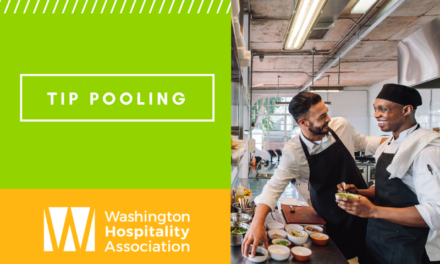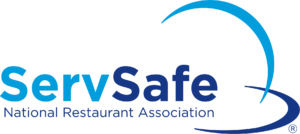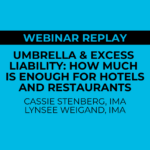Here’s a brief list of some of the information and clarity conveyed at this morning’s coronavirus webinar. Let the biggest takeaway be that our industry is equipped and ready to handle this. There is nothing unusual about keeping our businesses disease-free, and we can put staff and customers at ease by being open and transparent with prevention efforts. Make sure your kitchen is cleaned and the front of house dazzles.
Do:
● Have great customer service!
● Use your seasonal flu SOP as a guideline.
● Make sure there’s tissues around hand and plenty of trash cans to dispose of them. Stock your bathrooms with hand soap, hand sanitizer. Consider high-risk areas, like touch screens.
● Take the opportunity to post a clip of the clean-up or a finished glamour shot of the kitchen/dining area to show guests that your establishment takes their health seriously
● Share official resources with employees and share your plans.
● Rely on information from your employees about where they have traveled (you can ask), or, if they share it, how they have been exposed
● If you learn employees have traveled to a high-risk area or otherwise may have been exposed, because of the potential of exposure, you may have a reason to ask them to stay home. Seek legal advice.
● Decide on what your Remote Work policy is. Communicate this policy to your staff.
● Decide if you are going to allow more flexible use of PTO. Communicate this policy to your staff.
● Regarding cancellations: If you decide to cancel, consider the impact on your regular customers. Review existing contracts for obligations regarding cancelations and circumstances in which parties may cancel. Consider how your policies will help ensure your guests will want to return.
● If guests seem sick, you can ask things like “is there anything we can do for you?” Sometimes it’s how you ask the question — you cannot demand a customer have their temperature taken. You can take note, though, and plan for extra cleaning to their room or accommodations.
● You should have a plan to cover labor needs to account for employees who get sick or may become sick.
● You should have a plan on what to do if employees become ill or are exposed, and your team does not have adequate paid time off or paid sick leave available. Remember that you cannot make employees use paid sick leave to cover their absence.
● Remember that Department of Health regulations require an employer to send a food service worker home if they have symptoms like vomiting or a sore throat. Also, sending an employee home who displays symptoms of a contagious illnesses generally would not violate the ADA’s restrictions on disability-related actions.
● Understand that the seven-day waiting period for unemployment is not waived if you lay off workers because of a downturn in business due to corona virus or even if there is a closure that is recommended or ordered by public health authorities (That may change. Continue to monitor https://www.esd.wa.gov/unemployment/layoff-assistance.)
● Engage in thoughtful business planning. Have a look at the website, to learn what options you may have as you determine whether you can get by with just reducing employee or business hours or if greater actions might be considered.
● Remember that panic levels are lower outside of King County.
Don’t
● Don’t discriminate against guests or employees seemingly sick or with symptoms.
● Don’t discriminate against guests or employees based on their national origin: Do not assume that someone of Asian descent is more likely to have COVID-19.
● Don’t require guests to undergo measures like wearing masks or having temperatures taken unless ordered by public health authorities.
● Don’t require all of your employees to have their temperature taken before returning to work.
● Don’t require employees to certify they are “virus free” in all cases of missed work due to illness. When and whether you can ask for doctor’s will differ depending on if employees are using paid sick leave or the FMLA applies. A good rule of thumb is to wait to ask for doctor’s notes until they are out for three days or more. Be patient, however, as medical providers are expected to be unusually busy.
● If an employee or guest self-reports that they have the coronavirus, you must be thoughtful of privacy regarding health information. Seek guidance from local health officials about what to do. Never identify them by name to your employees, but you should communicate all relevant facts with your team and anyone who may have been exposed to address issues such as cleaning and sanitation and to address efforts to limit exposure.













